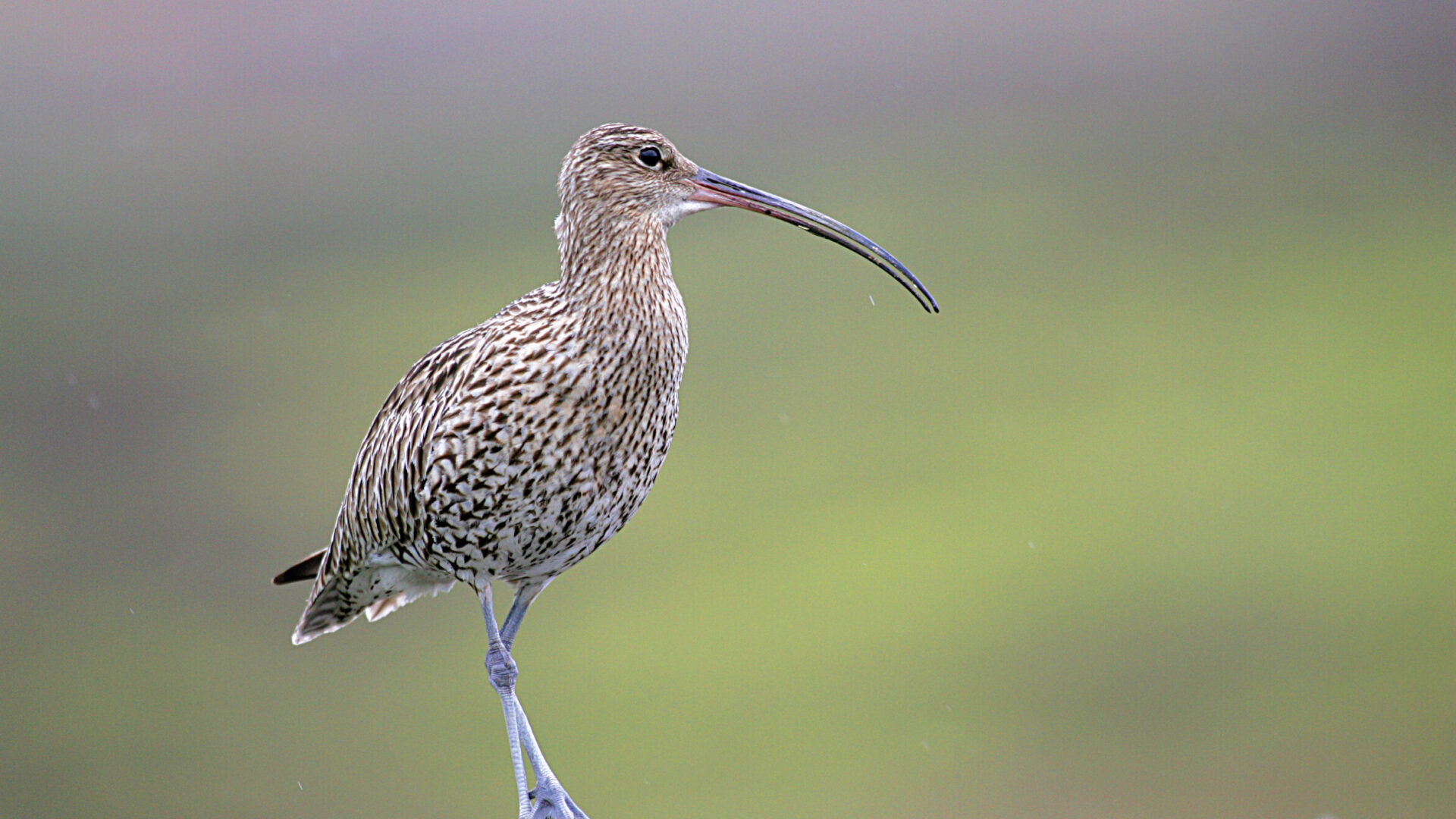
LookWild: Crucial Weeks for Curlew in the Yorkshire Dales
-
Date posted: 27/06/2025
-
Time to read: 4 mins
From the windswept moors and meadows of the Yorkshire Dales comes the wild, bubbling call of the curlew. As breeding season reaches its peak, National Park staff and local farmers rally to protect one of the UK’s fastest-declining birds.
Species on the Brink
If you’ve wandered the open hills and moorland of the Yorkshire Dales in spring or early summer, chances are you’ve heard the unmistakable call of the curlew. This iconic wading bird, with its long down-curved bill and mottled brown plumage, is a symbol of the uplands. But it’s a species in peril, and the Dales are one of its last strongholds.
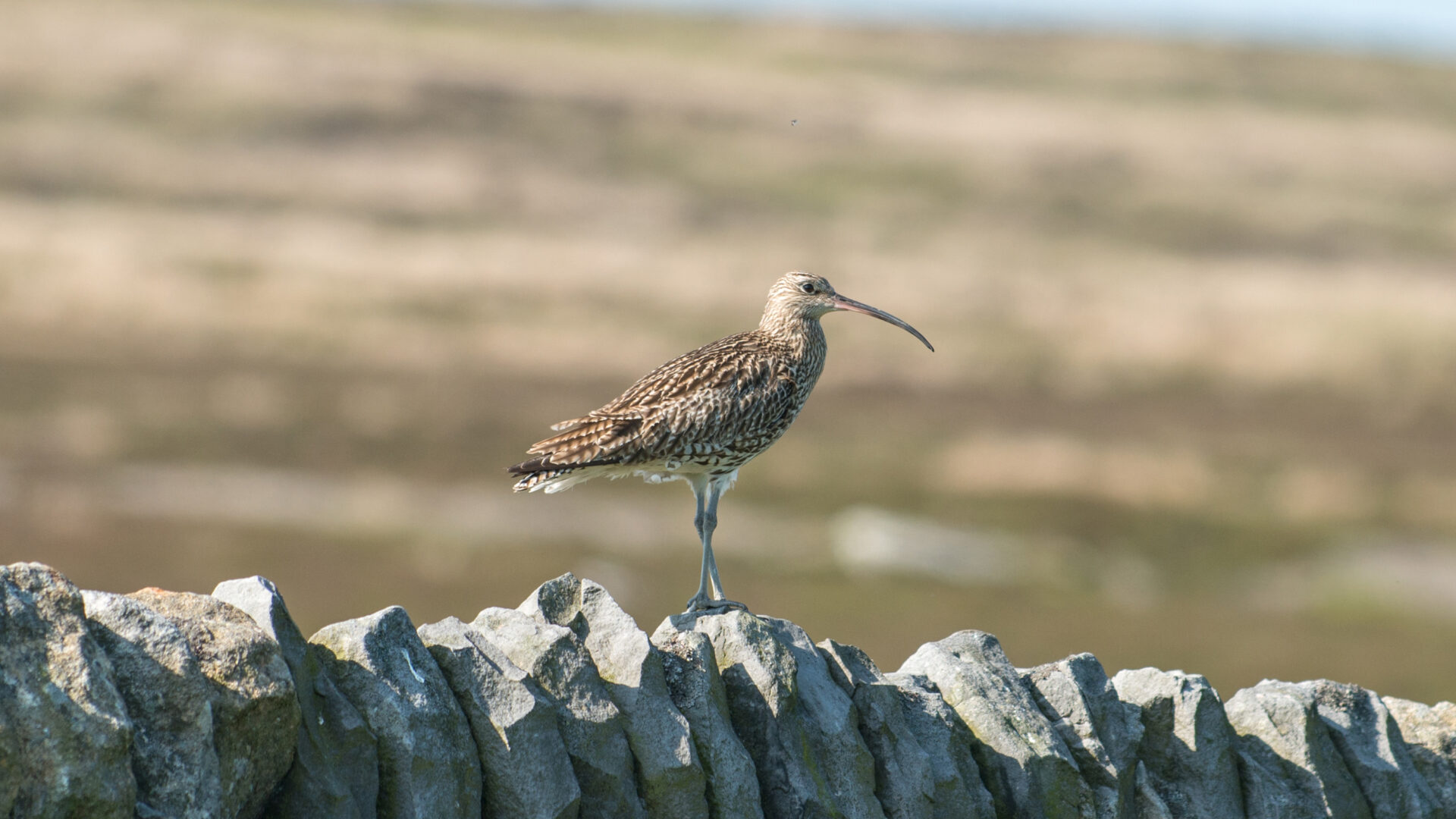
Curlew are one of the UK’s most rapidly declining breeding birds. Once a common sight across the countryside, their numbers have plummeted in recent decades due to changes in land use, habitat loss, and increased predation.
Now classed as a national conservation priority, the Eurasian curlew urgently needs targeted action to survive – and thrive – once again. It’s here, in the Yorkshire Dales National Park, which plays such a crucial role in their future.
A Vital Refuge
Within the Yorkshire Dales, we are fortunate to hold nationally significant numbers of breeding curlew. These birds favour open landscapes such as hay meadows, rough pasture, and upland heath – habitats that are becoming increasingly rare elsewhere.
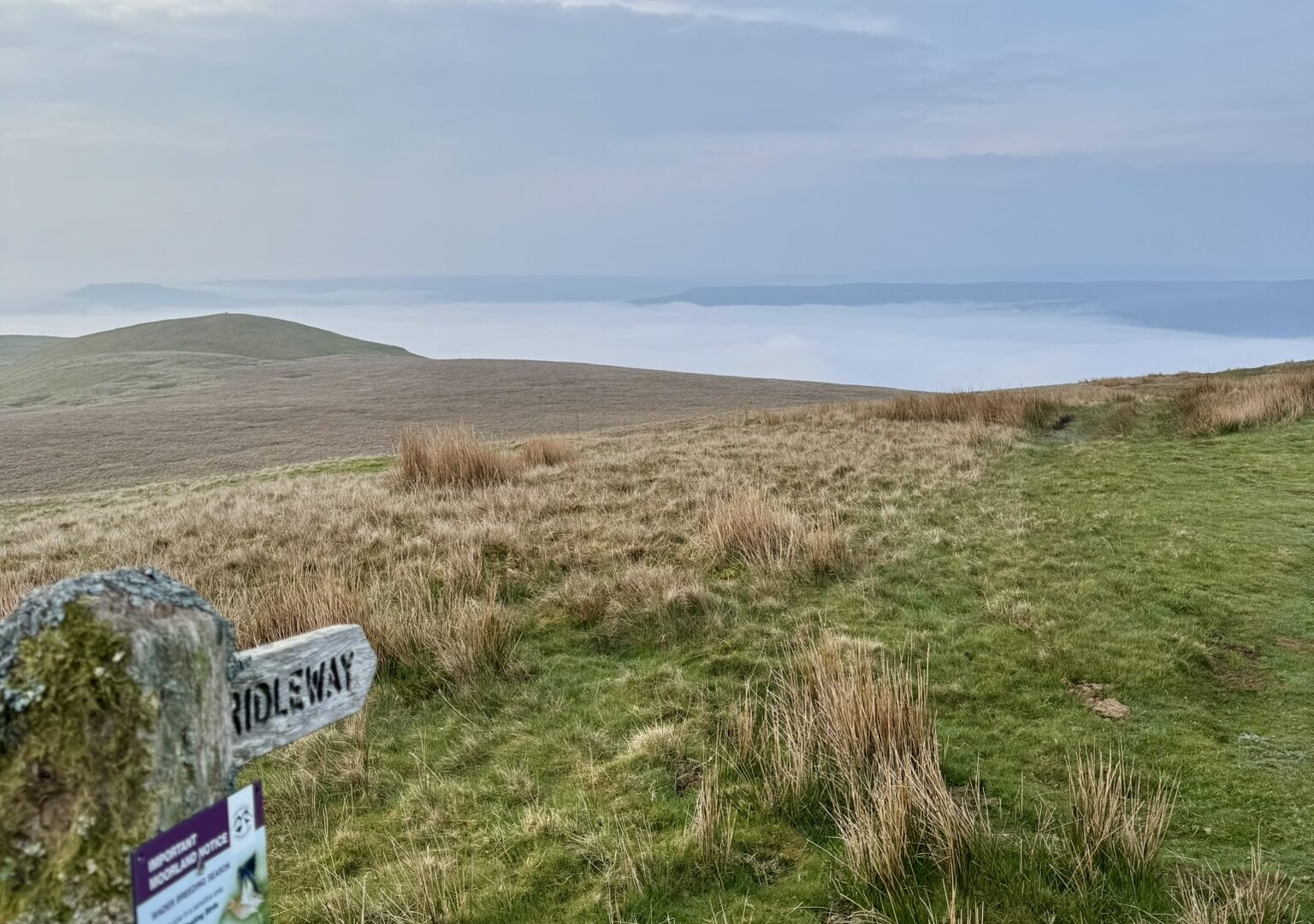
Here in the Dales, many local landowners, game keepers and farmers take pride in “their” curlew and are going above and beyond to protect these vulnerable ground-nesting birds.
Working Together
One of the innovative approaches underway involves close collaboration between the Yorkshire Dales National Park Authority, the British Trust for Ornithology (BTO), and a group of local farmers.
Together, we are trialling conservation techniques, including nest fencing to protect eggs and chicks from predators, to better understand which land management practices are most effective at boosting curlew breeding success.
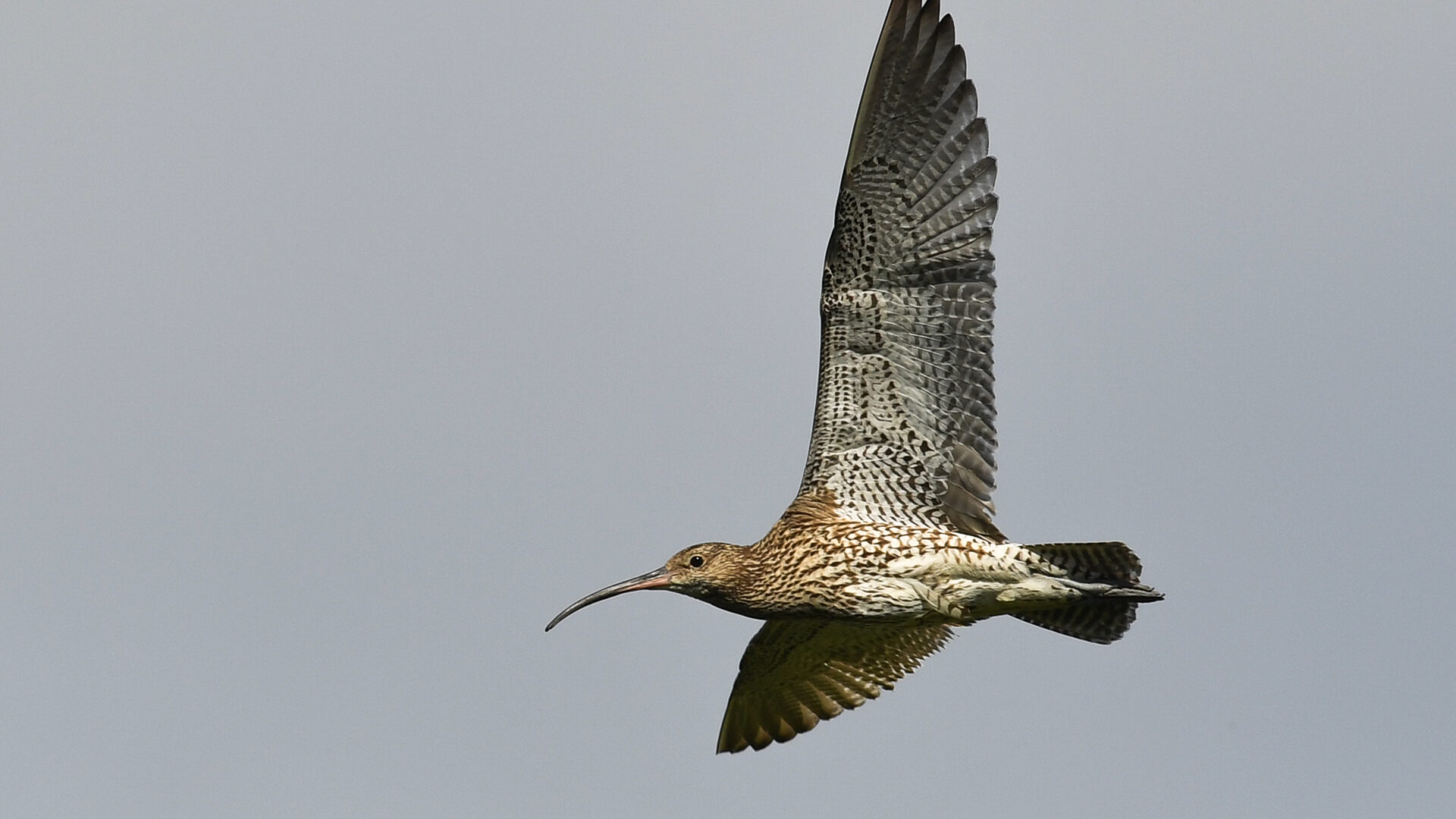
Fragile Weeks Ahead
This time of year is particularly sensitive. Some curlews are still incubating eggs, while others are shepherding small, fluffy chicks through the tall grasses. These young birds are incredibly vulnerable. Their nests are well camouflaged but exposed, and even brief disturbances can cause breeding attempts to fail.
This is where every visitor can make a difference.
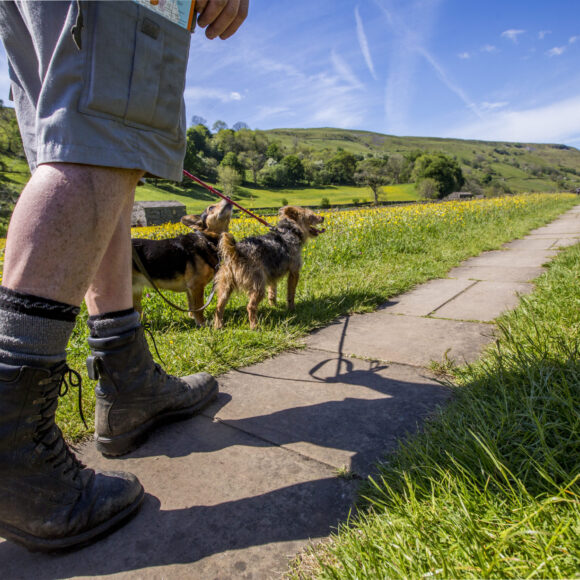
How You Can Help to Take the Lead
If you’re out walking in the Dales, you can make a real difference:
-
Keep dogs on a short lead and under close control
-
Stick to public footpaths and avoid straying into nesting habitat
-
Stay alert to signage during nesting season
A curious dog can easily flush a nesting bird or trample a hidden nest. A single disruption at the wrong moment can have devastating consequences for a species already under pressure.
Saving More Than a Bird
Protecting curlew isn’t just about preserving a species – it’s about safeguarding the soundscape, ecology, and character of our uplands.
With continued local support and mindful visitors, we can ensure that future generations will also get to hear the wild, spectacular call of the curlew echo across the moors.

Tabby McNicholas
Tabby is the Apprentice Media Officer at Yorkshire Dales National Park

